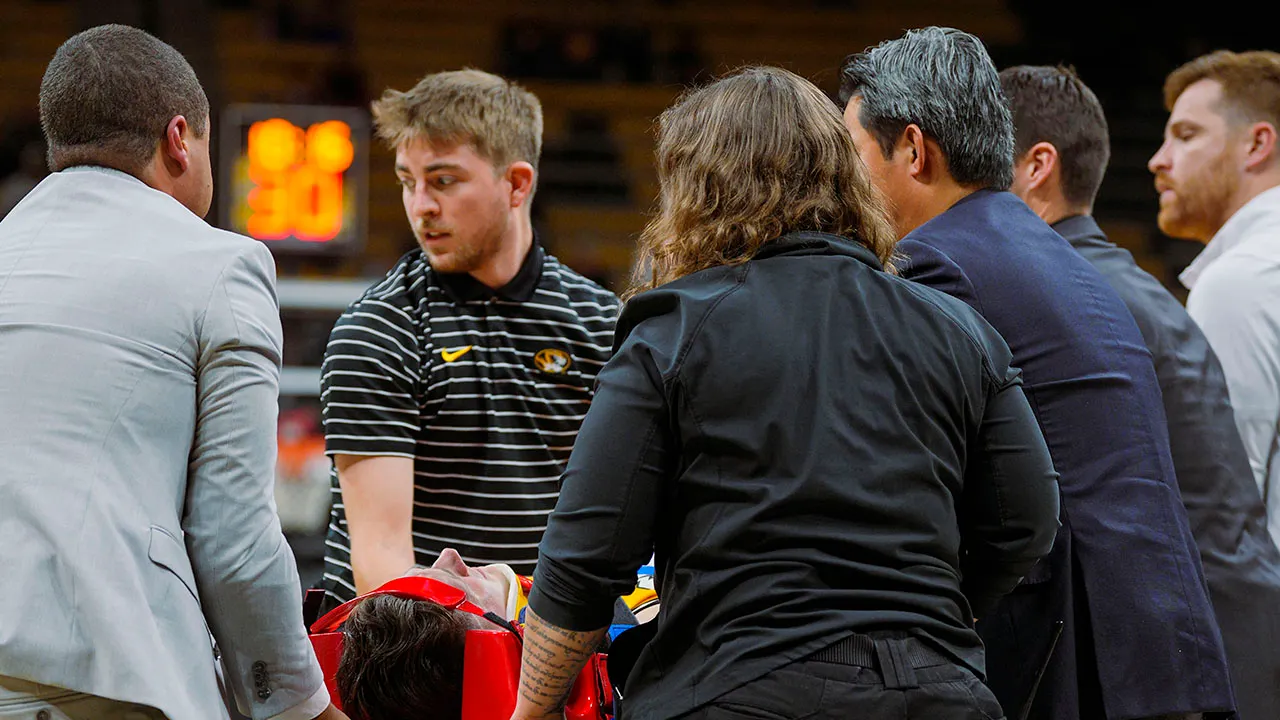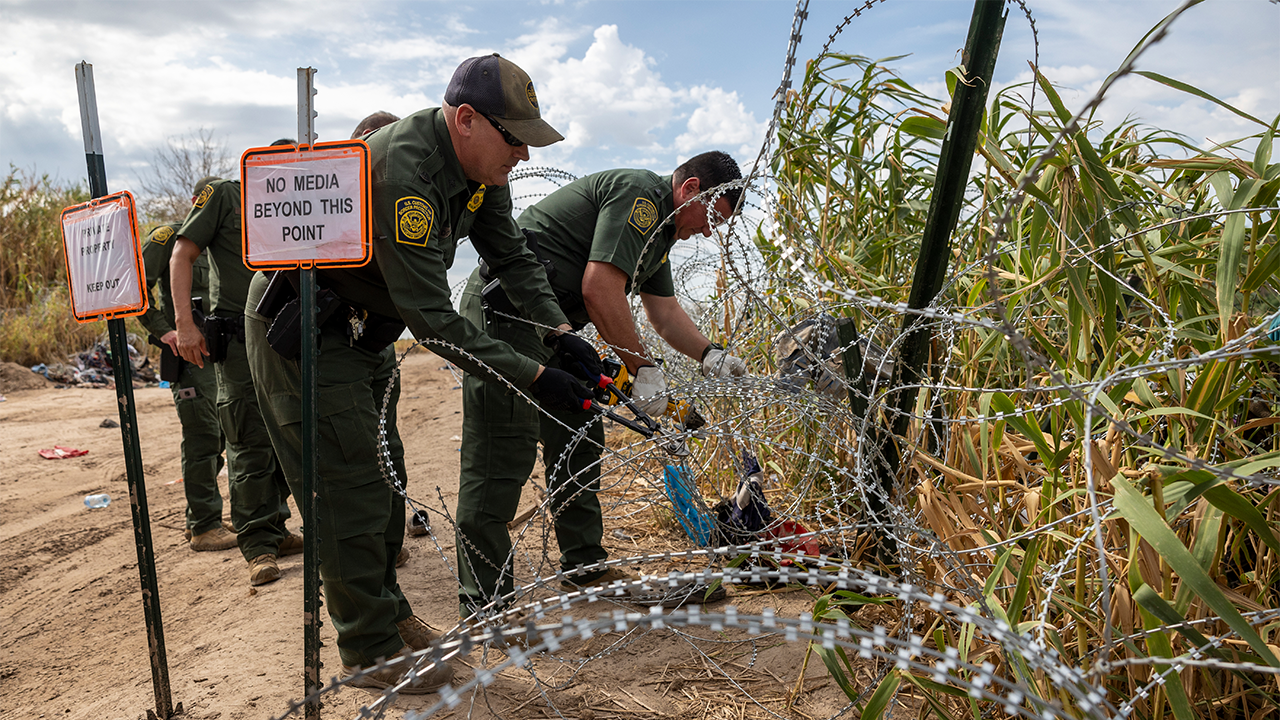Mississippi
Presley teetering on the tightrope

Brandon Presley’s campaign for governor is running on fumes, as progressive donors from across the country seem uninterested and haymakers miss their mark.
Barring a massive influx of money, or a hair raising scandal, the race for governor in Mississippi is over. Incumbent Governor Tate Reeves will very likely defeat Democratic challenger Brandon Presley, perhaps handedly. Even Presley’s allies are begrudingly waking up to this reality.
Presley started the race with a difficult tightrope act before him. With almost no name identification outside of his Tupelo-area stomping grounds, he needed big national Democrat donors to turn on the cash spigot to have any real chance of introducing himself to voters.
The sitting Northern District Public Service Commissioner also needed to convince enough Republican voters to cross over–that he was not so different from them–without scaring off those same increasingly progressive donors, or losing the African American voters that comprise the base of the Mississippi Democratic Party.
Thus far, he’s failed the balancing act. Judging from his campaign coffers, liberal donors from across the country are not inspired by his down home, Pappy O’Daniel routine. Neither are the Republican voters he had hoped to lure.
In a fairly polarized culture, “sort of, maybe conservative” on some things and “sort of, maybe liberal” on others does not scratch either sides’ itch. If he’s still on the rope at all, he’s teetering on the precipice of a fall.
Presley’s position on the recent Mississippi law banning gender reassignment treatments for minors is a great example of how tepid desire to please two masters yields poor results.
Faced with questions on the law at the Mississippi Press Association’s Annual Convention, Presley danced around whether he supported it. But his statement at the time, that he trusted “mamas and daddies” to make medical decisions, was widely interpreted as disapproval for the law.
Just days before taking the stage at the Neshoba County Fair and anticipating a new wave of questions on the subject, Presley attempted to draw the sting. He told reporters at Mississippi Today that he would not “work to overturn these laws” if elected governor, and that the issue was “settled.”
His progressive army on social media turned despondent. The move will not win over conservatives, either, who view it as a “I disagree with your approach, but I won’t fight you.” To both sides of the issue, the maneuvering communicates weakness.

Apart from the niche controversy of gender reassignment treatments for minors, Presley’s campaign has been constructed around two issues–expanding Medicaid for the putative purpose of helping hospitals and the alleged corruption of the current administration.
Neither talking point has stuck. When the Mississippi Hospital Association (MHA) came out big for Presley with a $250,000 donation earlier this year, he likely thought he had gained a powerful arrow in his quiver–proof that hospitals were with him.
Instead, as documented through a series of investigative reports by Magnolia Tribune, the Hospital Association’s decision split the organization in two. Almost every large hospital system in the state left MHA, with several CEOs expressing a lack of confidence in the association’s current leadership on the way out.
Presley friends in the media are lamenting the fact that their number one issue is not at the forefront of voters’ or candidates’ minds. Mississippi Today’s Adam Ganucheau described “the hospital crisis” as “the state’s most dire problem,” before bemoaning that no one seems to care.
Perhaps both Presley and his allies are underestimating voters ability to think about issues, like access to health care, in more nuanced ways, apart from dogmatic political agendas.
Either way, the “hospital crisis” message is not presently resonating. In a possible sign of pent up frustration, Presley bizarrely lashed out at Memorial Hospital CEO Kent Nicaud midway through his speech at the Neshoba County Fair. Presley suggested Nicaud, who has been a financial supporter of Reeves, was rewarded for his support with a seat on Mississippi’s Gaming Commission.
It’s hard to imagine many fairgoers knew Nicaud’s name or saw it as a winning zing. It’s even harder to imagine that someone in Nicaud’s position would make a political contribution because he really craves a $40 per diem four times a year in exchange for losing a day’s worth of work each time. That’s hardly lucrative. In fact, for most working stiffs it would represent a loss.
A better explanation for Presley singling out Nicaud may well be the fact that Memorial was one of the first hospitals to leave MHA following its decision to go big for Presley.
Just as the push for Medicaid expansion has not yielded the momentum Presley needs, neither has the accusation that Tate Reeves was complicit in the TANF welfare scandal.
Reeves has not been implicated in the scandal. He is not under investigation. He has not faced any charges. Presley has attempted to persuade voters of attenuated guilt by association, relying on the fact that Reeves was Lieutenant Governor when the scandal occurred. To date, only those already in his camp seem to be buying it.
It’s not yet August. There are months until the November general election and a lot can happen between now and then. But, if the race for governor were held today, Reeves would defeat Presley by a stronger margin than he defeated former Attorney General Jim Hood in 2019, and there are no immediate signs that likely outcome will change.

Mississippi
Minor earthquake recorded in Mississippi on Thanksgiving

MADISON COUNTY, Miss. (WJTV) – A minor earthquake was recorded in Mississippi early Thanksgiving morning.
According to the United States Geological Survey (USGS), the 2.5-magnitude earthquake occurred southeast of Canton near the Ross Barnett Reservoir around 1:48 a.m. on Thursday, November 28.
Officials with the Michigan Technological University said earthquakes below 2.5-magnitude are “generally not felt.” So far, there are no reports of any damage in Madison County.
The last earthquake that occurred in Madison County was a 2.8-magnitude earthquake in 2019.
Mississippi
Thanksgiving on Mississippi Public Broadcasting Think Radio, set to air on Thursday, November 28th

MISSISSIPPI (KTVE/KARD) — For Thanksgiving, on Thursday, November 28, 2024, the Mississippi Public Broadcasting Radio will air a special programming.
Photo courtesy of Mississippi Public Broadcasting
According to officials, “Turkey Confidential” and “Feasting with the Great American Songbook: An Afterglow Thanksgiving Special” will run from 9 a.m. to 1 p.m. Francis Lam will be taking calls and help those in need of Thanksgiving cooking tips for the biggest cooking day of the year.
According to officals, “Feasting with the Great American Songbook: An Afterglow Thanksgiving Special” will explore classic jazz and popular songs about food by singers like Louis Armstrong, Louis Jordan, and Fats Waller, perfect for listening while sitting at the table.
Mississippi
Southeast Mississippi Christmas Parades 2024 | WKRG.com

MISSISSIPPI (WKRG) — It’s beginning to look a lot like Christmas on the Gulf Coast and that means Santa Claus will be heading to town for multiple parades around the area.
WKRG has compiled a list of Christmas parades coming to Southeast Mississippi.
Christmas on the Water — Biloxi
- Dec. 7
- 6 p.m.
- Begins at Biloxi Lighthouse and will go past the Golden Nugget
Lucedale Christmas Parade
-

 Science1 week ago
Science1 week agoTrump nominates Dr. Oz to head Medicare and Medicaid and help take on 'illness industrial complex'
-
/cdn.vox-cdn.com/uploads/chorus_asset/file/25739950/247386_Elon_Musk_Open_AI_CVirginia.jpg)
/cdn.vox-cdn.com/uploads/chorus_asset/file/25739950/247386_Elon_Musk_Open_AI_CVirginia.jpg) Technology1 week ago
Technology1 week agoInside Elon Musk’s messy breakup with OpenAI
-

 Health5 days ago
Health5 days agoHoliday gatherings can lead to stress eating: Try these 5 tips to control it
-

 Health3 days ago
Health3 days agoCheekyMD Offers Needle-Free GLP-1s | Woman's World
-

 Science2 days ago
Science2 days agoDespite warnings from bird flu experts, it's business as usual in California dairy country
-

 Technology1 day ago
Technology1 day agoLost access? Here’s how to reclaim your Facebook account
-

 Science1 week ago
Science1 week agoAlameda County child believed to be latest case of bird flu; source unknown
-

 Sports1 week ago
Sports1 week agoBehind Comcast's big TV deal: a bleak picture for once mighty cable industry


.jpeg.ca95269fce1db9861b700d87a34be4c6.jpeg)











